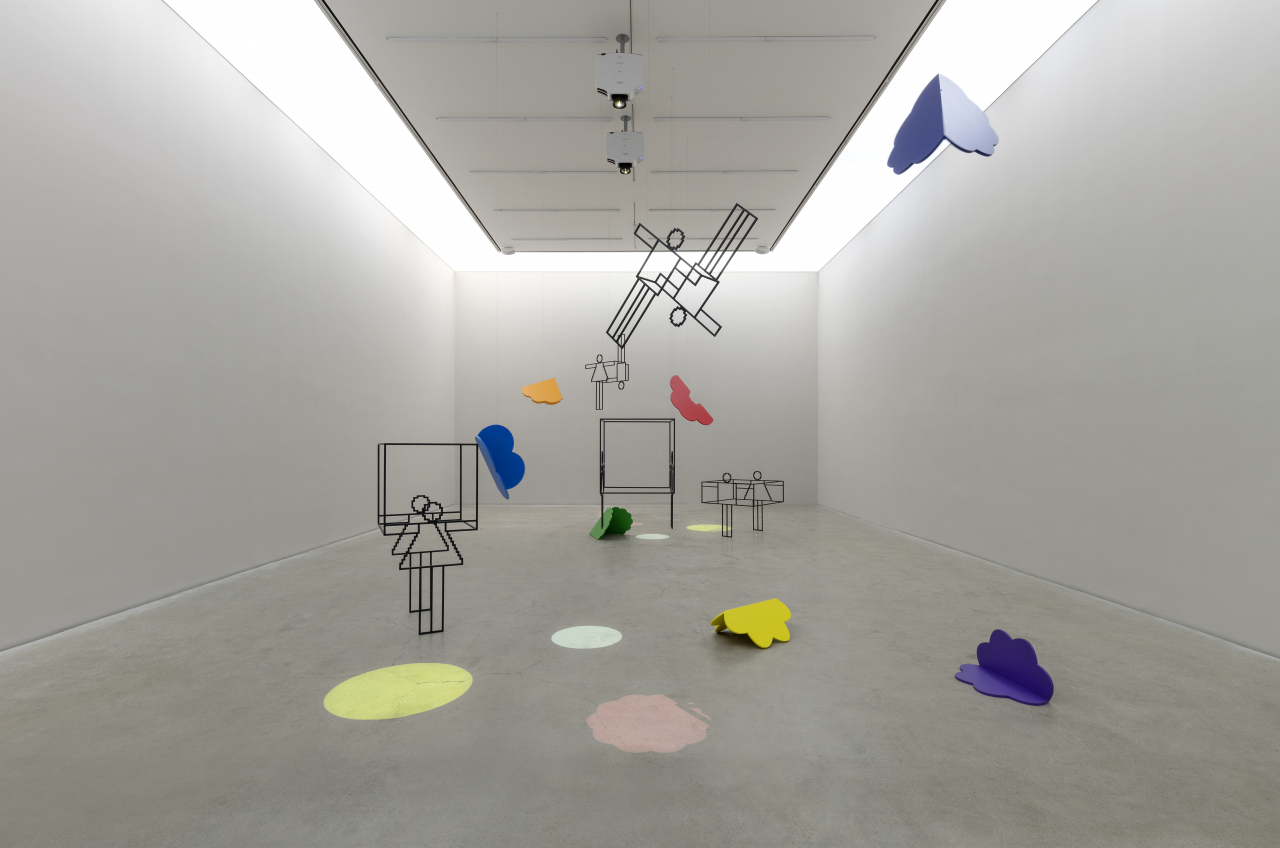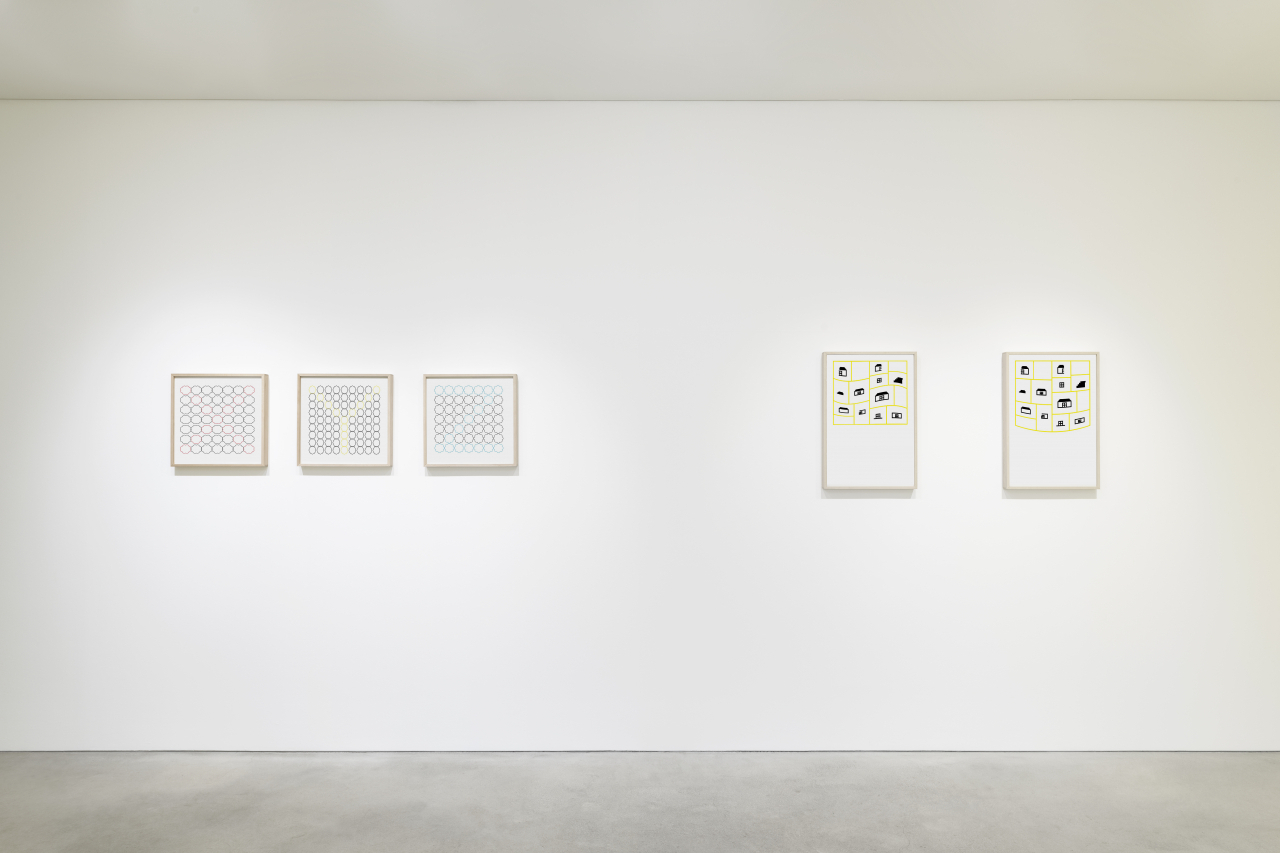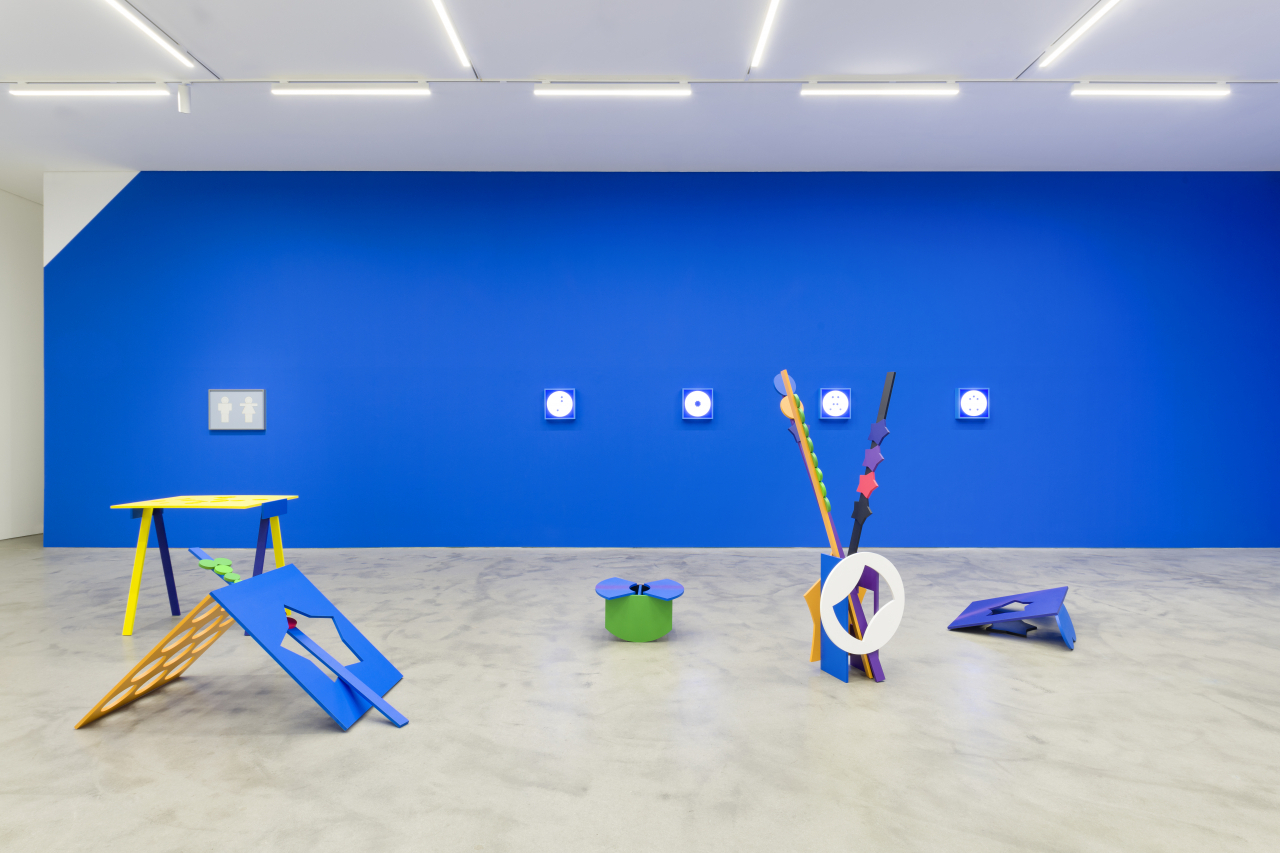 |
An installation view of "Over the Layers II" at Kukje Gallery in Seoul (courtesy of the gallery, Hong Seung-hye) |
Hong Seung-hye is an artist who continuously expands her artistic horizons. Twenty-six years after discovering the artistic potential of computer pixels, she has transcended to a new dimension in her craft, inviting others to explore the captivating world of her latest creations.
Hong named the exhibition “Over the Layers II” at the Kukje Gallery, reminiscing about the song “Over the Rainbow” from the film “The Wizard of Oz.” The latest show is the second iteration of "Over the Layers," which she originally presented in 2004. Her previous exhibition featured artwork created with Photoshop that explored the intricate networks within computer.
“The song ‘Over the Rainbow’ talks about the world that one dreams of, which is a place where ‘troubles melt like lemon drops’ and ‘blue birds fly over the rainbow.’ I think that is what art is for many people -- taking us to a world where we dream of and makes us forget about all the troubles while we are enjoying it,” Hong told The Korea Herald during the interview on Feb. 14 at the Kukje Gallery.
 |
"When Flowering" by Hong Seung-Hye (courtesy of the artist, Kukje Gallery) |
In creating her works for the exhibition, Hong said she felt like she could break away from the grids of Photoshop that she immersed herself in since 1997 when she presented the exhibition “Organic Geometry” at the gallery, unveiling works using Photoshop's raster-based graphics.
Hong said it took 26 years for her to escape from the “prison of pixels” to move on to another world of artistic tools -- adopting the vector grammar of Illustrator for the first time. Hong unveiled works that she created using both Illustrator and Photoshop across the gallery at the exhibition, which runs through March 19.
Hong experimented with more colors and shapes in her new creations using Illustrator, almost as if she is partially returning to when she first explored colors in her early artistic career before computer design software became her primary medium.
 |
An installation view of "Over the Layers II" at Kukje Gallery in Seoul (courtesy of the gallery and Hong Seung-hye) |
Hong dedicated the walls of the exhibition hall K1 to French artist Henri Matisse. She honored Matisse’s papier decoupe -- famous paper cutouts created at the end of his life -- with “The Lemon Cutout” and “The Sky Cutout” that are displayed on the corners of K1.
“Matisse’s paintings made me fall in love with art. When looking at his creations, I felt comfort, forgetting about all the troubles. I wanted to give back to people what I earned from art. You can’t give what you have not been given,” she said.
Hong also creates objects that can function as furniture -- desks, chairs and shelves. The objects are perforated with various shapes, which, at first glance, makes it difficult to see how they can function as furniture. Questioning how one might use the objects is another intriguing part of Hong’s works.
 |
An installation view of "Over the Layers II" at Kukje Gallery in Seoul (courtesy of the gallery and Hong Seung-hye) |
“I am interested in things that are tricky or constantly transform, rather than things that are defined. For the objects, it is totally up to the people who would use them. The users will complete the meaning of the objects,” Hong said.
Hong, who is also a professor in the Department of Fine Arts at Seoul National University of Science and Technology, lived through times when she had doubts about herself as an artist, like many artists do when pursuing their art. It was the people who admired her art that kept her going as an artist. Art, ultimately, is a matter of one’s taste, and an artist cannot satisfy everyone.
“Whether they like my art really depends on their taste. And interestingly, if people did not have (individual) taste, art would not have existed. If you are an artist, you start off with people who would like your works, and (eventually) more people will gradually start to show interest in your art. That was my case,” Hong said.
At night, a separate exhibition hall outside the gallery, K3, turns into a ballroom where pictogram dolls and colorful flowers appear as if they are dancing, accompanied by music and projection. The gallery remains open until 8 p.m. on Wednesdays, inviting people to the “party.”
By Park Yuna (yunapark@heraldcorp.com)






![[Today’s K-pop] Blackpink’s Jennie, Lisa invited to Coachella as solo acts](http://res.heraldm.com/phpwas/restmb_idxmake.php?idx=644&simg=/content/image/2024/11/21/20241121050099_0.jpg)
